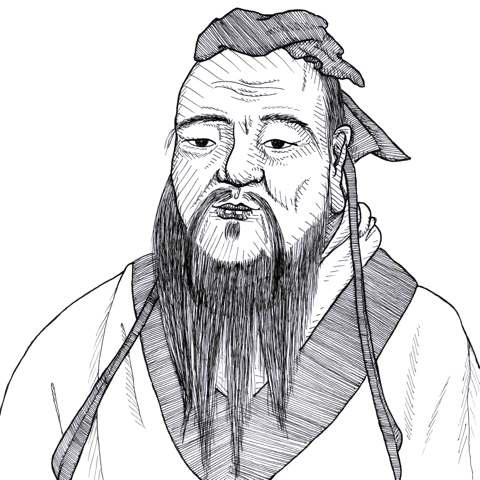
Confucius on Prudence and the Superior Man
Found in: The Ethics of Confucius
This quote from Confucius (551-479 BCE) provides his advice about speaking and acting:
Philosophy
Prudence: “The superior man wishes to be slow in his words and earnest in his conduct.” (Analects, bk. iv., c. xxiv.) (FROM: CHAPTER I: WHAT CONSTITUTES THE SUPERIOR MAN) - Confucius